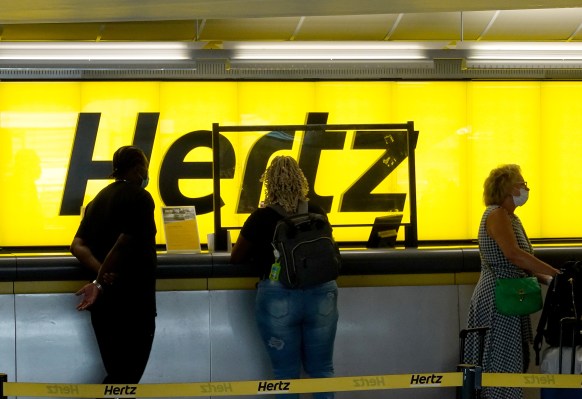Hertz is selling its EVs because it botched the rollout for ride-share drivers
It’s a precautionary tale for how to assess new markets — and how not to introduce a new product
Hertz made a splash in 2021 when it announced that it would buy 100,000 Tesla Model 3 sedans in a little over a year. Six months later, the rental car company said it would buy 65,000 Polestars over five years. It appeared that the EV transition was about to sweep the rental car market.
On Thursday, the sweep sputtered.
Hertz said in an SEC filing that it would be selling 20,000 of its EVs and replacing them with fossil fuel–powered vehicles. Another sign of EV momentum slowing? Perhaps. But it’s more likely a precautionary tale for how businesses should assess new markets — and how not to introduce a new product to your customers.
After Hertz started buying EVs, it directed most of them to Uber drivers. Uber was pushing drivers toward EVs in a number of markets, cities like New York were enticing them to make the switch, and they had attractive operating costs relative to gas-powered cars. Uber drivers also rented the cars for longer periods of time, Hertz said, meaning that fewer employees were needed to support a given number of vehicles. Plus, maintenance costs were lower, and Hertz was able to rent them at higher prices.
“Electric vehicles open the door to our growing presence in ride-share, where electrification is a fast approaching requirement not merely an option, in a channel where we are uniquely positioned,” Hertz CEO Stephen Scherr said in the company’s Q3 earnings call.
But while maintenance costs may have been lower, repairing damage from collisions ended up being higher than expected. Given that Teslas cost more to repair, that shouldn’t come as a surprise. They’re relatively new vehicles, and body shops don’t have as much experience with them. It’s a problem that’s not unique to Teslas: Fixing a Volkswagen costs more than fixing a Chevy, for example. Why Hertz thought its cars would be different is anyone’s guess.
It’s a precautionary tale for how to assess new markets — and how not to introduce a new product

Hertz made a splash in 2021 when it announced that it would buy 100,000 Tesla Model 3 sedans in a little over a year. Six months later, the rental car company said it would buy 65,000 Polestars over five years. It appeared that the EV transition was about to sweep the rental car market.
On Thursday, the sweep sputtered.
Hertz said in an SEC filing that it would be selling 20,000 of its EVs and replacing them with fossil fuel–powered vehicles. Another sign of EV momentum slowing? Perhaps. But it’s more likely a precautionary tale for how businesses should assess new markets — and how not to introduce a new product to your customers.
After Hertz started buying EVs, it directed most of them to Uber drivers. Uber was pushing drivers toward EVs in a number of markets, cities like New York were enticing them to make the switch, and they had attractive operating costs relative to gas-powered cars. Uber drivers also rented the cars for longer periods of time, Hertz said, meaning that fewer employees were needed to support a given number of vehicles. Plus, maintenance costs were lower, and Hertz was able to rent them at higher prices.
“Electric vehicles open the door to our growing presence in ride-share, where electrification is a fast approaching requirement not merely an option, in a channel where we are uniquely positioned,” Hertz CEO Stephen Scherr said in the company’s Q3 earnings call.
But while maintenance costs may have been lower, repairing damage from collisions ended up being higher than expected. Given that Teslas cost more to repair, that shouldn’t come as a surprise. They’re relatively new vehicles, and body shops don’t have as much experience with them. It’s a problem that’s not unique to Teslas: Fixing a Volkswagen costs more than fixing a Chevy, for example. Why Hertz thought its cars would be different is anyone’s guess.
